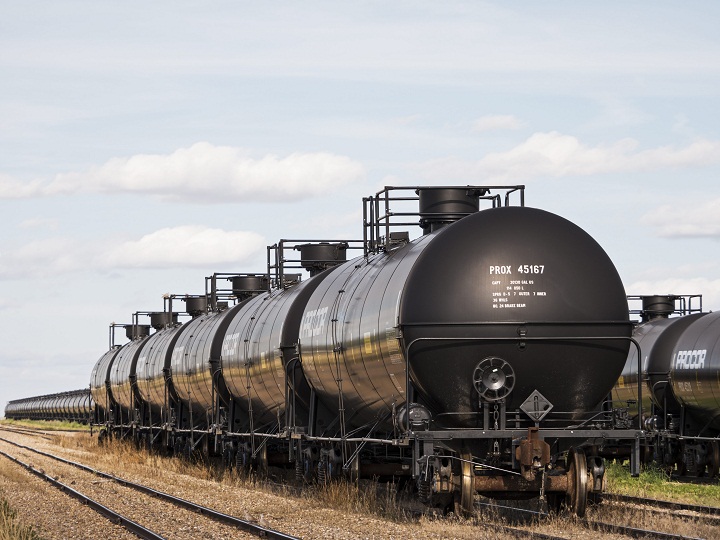After a brief slowdown earlier this year, trains are once again carrying skyrocketing amounts of oil across the country. According to data from the National Energy Board, more than 8.8 million barrels of crude were moved by rail in May, up more than two million barrels from last year.

That has some voicing concern over the risks involved in transporting oil by train.
“The volume of traffic on the rails has increased significantly and with it goes the risk of accidents,” says York University professor Mark Winfield.
Winfield says the Lac Megantic disaster in the summer of 2013 served as a wake-up call to the industry. Forty-seven people died when an unmanned train carrying oil derailed and exploded in the small Quebec town.
“We’re, in effect, in an experiment stage to see whether or not the changes that were made post-Lac Megantic are actually adequate to prevent further derailments.”
In February, three crew members were killed when a CP rail train derailed near Field, B.C. The transportation safety board investigation into the incident has not yet been completed but Winfield says the incident demonstrates problems with rail safety in Canada remain.
“There are outstanding questions about whether or not the necessary changes to the regulatory system have been fully implemented or indeed whether the changes that were made were adequate.”
Transport Canada says safety rules have been improved, with lower permitted speeds, hastened phase-out timelines for older tanker cars, more rail safety inspections and stronger rail tank car standards. The federal government also introduced new braking regulations earlier this year. Hand brakes are now required to be used on any train parked on a mountain grade after an emergency use of air brakes.
On Tuesday, 14 car derailed in southeast Calgary. Four tanker cars labelled “diesel” were among those that left the track, but CN rail says they were empty and no chemicals were spilled.
The derailment comes as residents Wabamun Lake prepare to mark the 14th anniversary of a derailment that sent 700,000 litres of bunker oil and other chemicals into the lake.
“It was devastating,” Wabamun Lake resident Douglas Goss said. “Half the lakeshore was covered in black goop and with that came all kinds of birds and wildlife that were not just injured, they perished.”
Years later, the lake has recovered, but Goss says the constant rumble of trains carrying oil through the community is unsettling.
“As a resident, what do I want to see? I would rather see all of that volume (of oil) moved in the safest possible way and that’s by pipeline.”




Comments